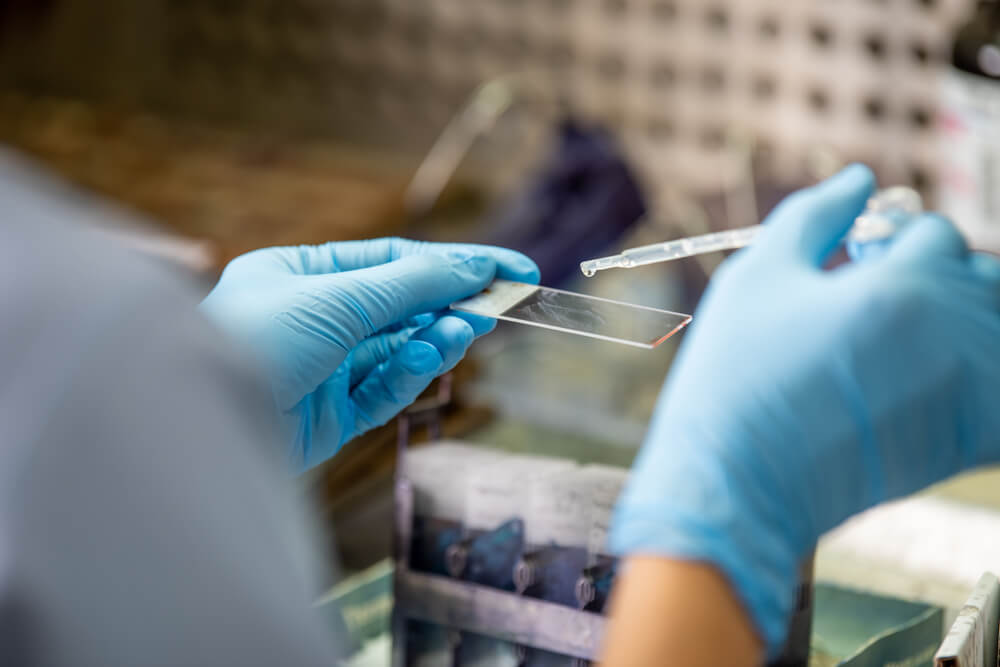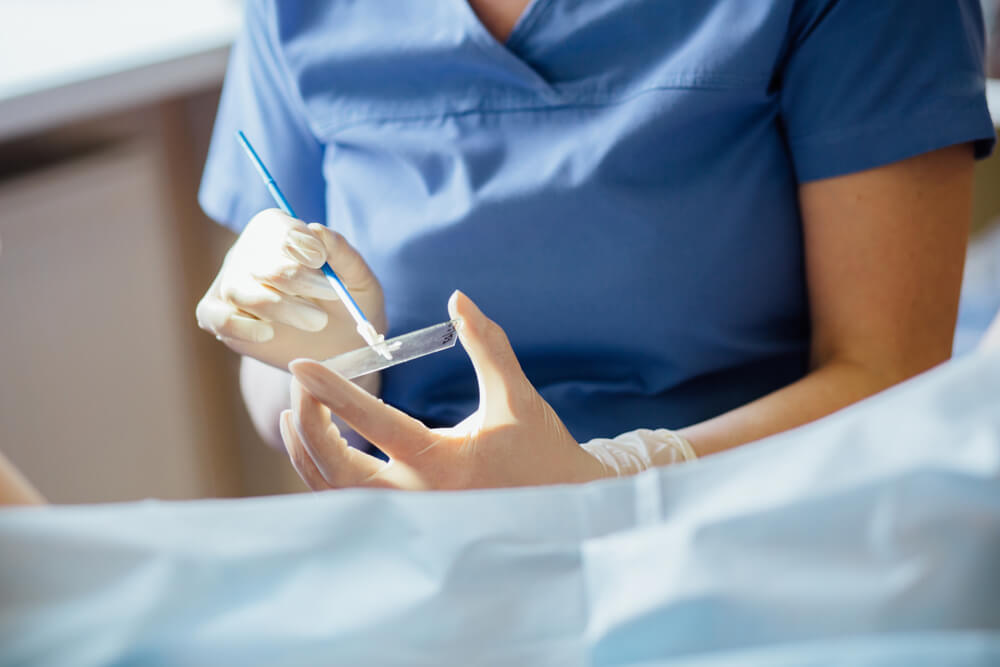Disclaimer: Please note that this blog is for educational purposes only, it includes general information on health-related topics. Women’s Healthcare of Boca Raton is giving medical advice to Patients Only. Follow this link to request an appointment with Dr. Ellman.
You might feel anxious before your first gynecologist appointment. You might also wonder, does a Pap smear test hurt? There is nothing to worry about when our team handles you. We strive to make you feel relaxed and comfortable. You can bring in a family member if it makes you feel at ease. Here is everything you should know before your Pap smear.
What Is a Pap Smear Test, and Why Do You Need It?
Also known as a Pap test, a Pap smear refers to the procedure of collecting cells from your cervix to test for cervical cancer. The gynecologist looks for abnormal cell changes that might indicate the development of cancer. Besides a Pap test, the gynecologist will also test for HPV (human papillomavirus), which is a virus which causes cell changes.
Early detection of cervical cancer gives you a better chance at a cure. According to the World Health Organization, we can prevent up to 50% of cancer cases through an early diagnosis. During the Pap test, the gynecologist checks for signs that cancer may develop in the future to stop its development.
Who Needs to Have a Pap Smear?
Your primary care physician can advise when to have your first Pap test. However, doctors recommend a Pap test after two or three years for all women older than 20 years.
According to the American College of Obstetricians and Gynecologists, ACOG, women younger than 21 years do not need to have a screening. Women between 21 and 29 years should have a Pap test on a 3-year basis. Women between 30 and 65 years can choose to have:
- A Pap test and a HPV test done together after every five years
- A Pap test alone after three years
- A HPV test alone after five years
If you are older than 65 years, you do not need a screening unless you’ve had a history of abnormal cervical cells. Women older than 65 years who’ve had three consecutive negative tests within the past 10 years need no tests. Any woman who has had a hysterectomy and has no cervix and those vaccinated against HPV still need to have a Pap smear.
Women who need to have more frequent screening to check for abnormal cells are those with:
- A history of cervical cancer
- Human Immunodeficiency Virus, HIV
- A weak immune system
- A history of smoking
- Exposure to diethylstilbestrol (DES) before birth
It’s important to note that DES is a synthetic estrogen administered to women between 1940 and 1971 as a preventative measure for miscarriages, pregnancy complications, and premature labor. Those exposed to the hormone are 40 times more at risk of developing cancer compared to unexposed women.
If you’ve had a hysterectomy, and you have no cervix, you need a Pap test only if you’ve had a history of cervical cancer. If you’ve had no history of cancer, and you have no cervix, you do not need screening.
You still need to see your OB-GYN every year for vaccinations, health screenings, birth control, preconception care, and to get details on your overall reproductive state.
How to Get Ready for a Pap Smear
If you are about to have your first Pap smear, avoid the following at least two days before your appointment:
- Intercourse
- Douching
- Vaginal medications
- Spermicidal foams
- Creams and jellies
The above can wash out or hide abnormal cells, making it hard for the gynecologist to detect them. Try to avoid an appointment when you are on your menstrual period as the flow of blood can interfere with the collection of cells. A period-free day makes the test more comfortable for you.

What to Expect During the Pap Test
Does a Pap smear test hurt? No, you will not feel any pain during the process. You might feel a little sensation of pressure on your pelvic area, but that is all.
During the test, we will ask you to undress from the waist downwards or fully, depending on the attire you have on. The gynecologist will ask you to lie on the exam table with your heels resting on supports. Doctors refer to these supports as stirrups. The gynecologist will insert a device known as a speculum in your vagina to hold the vaginal walls apart for easy access to the cervix. The doctor then collects cervical cells using a device that scrapes the surface. If you follow the procedure on how to prepare for a Pap smear, the process will be easy.
What to Expect After the Pap Smear
After the Pap smear, you are free to go about your day without any restrictions. The gynecologist will preserve the cells either in a liquid (for a liquid-based Pap test) or on a glass slide (for a conventional Pap test). Your gynecologist will then transfer them to the lab for examination. During the examination, the doctor checks for any characteristics on the cells that might indicate the development of cancer or any precancerous conditions.
At Women’s Healthcare of Boca Raton, your doctor will inform you when the results are ready.
Pap Smear Results
A Pap test comes out positive or negative. If your cervical cells are normal, you do not need another test or treatment until your next Pap test. If your doctor notes abnormal cell characteristics, they will conclude that you have positive results. However, this is not a declaration that you have cervical cancer. The nature of the results is dependent on the types of cells the doctor discovers.
Depending on what doctors find, they might use the following terms:
- Atypical squamous cells of undetermined significance (ASCUS) – They are common on a healthy cervix. They appear as thin and flat cells, and they are not an indication that you have a precancerous condition. If doctors note you have ASCUS, they will perform a liquid-based test to determine the presence or absence of the human papillomavirus (HPV). If your cells show no presence of HPV, your doctor gives you a clean bill of health. If the test shows viruses associated with cancer, the doctor will perform further tests before taking the next course of action.
- Squamous intraepithelial lesion – This is a term that indicates the cells appear precancerous. The changes on cells might be low grade, which means the lesion is years from developing to cancer, or high grade, for lesions that might become cancer soon. At Women’s Healthcare, we perform more diagnostic tests.
- Atypical glandular cells – They create mucus in the cervix and uterus of women. Atypical cells mean they are slightly abnormal, but it is not clear if they are cancerous. The doctor will perform more diagnostic tests to ascertain the condition of the cells.
- Squamous cell cancer/adenocarcinoma cells – Either of these terms indicate that the cells are severely abnormal, and cancer might be present. Squamous cell cancer shows that cancer arises from the squamous cells while adenocarcinoma cells show that cancer arises from the glandular cells. We will recommend further evaluation in such a case.
Schedule Your Pap Smear Today
Does this information help put you at ease? The best way to fight cervical cancer is to detect it early. To do that, start by scheduling your Pap smear test with us today. You can also call us if you have any questions.

Dr. Ellman is a Board Certified OBGYN who established his medical practice in South Florida over 25 years ago. His office, Women’s Healthcare of Boca Raton, is located in Boca Raton, Florida at West Boca Medical Center. Dr. Ellman attended Albert Einstein College of Medicine of Yeshiva University, where he received his medical degree. He went on to intern at Beth Israel Hospital in Boston- an affiliate of Harvard Medical School- and continued his residency at North Shore University Hospital in Manhasset, New York- an affiliate of Cornell Medical School.
Dr. Ellman has practiced Obstetrics and Gynecology in the Boca Raton area since 1995. In addition to treating patients at West Boca Hospital, Dr. Ellman also treats patients through his own private practice, Women’s Healthcare of Boca Raton, located on the West Boca Medical Campus.


